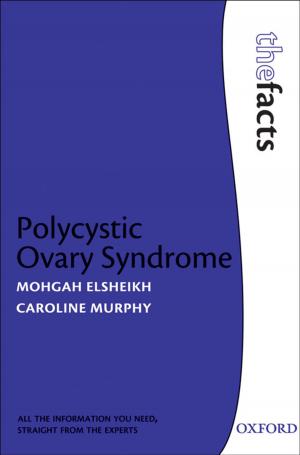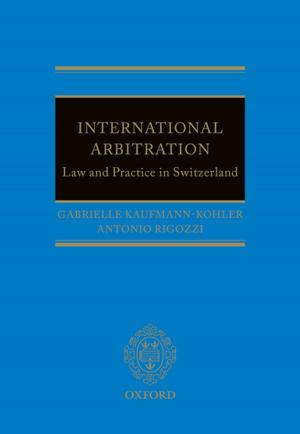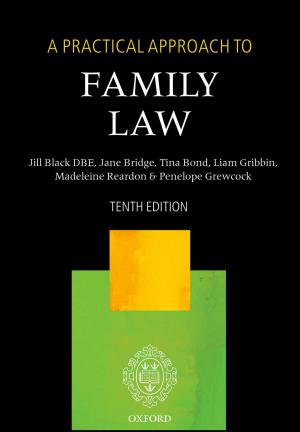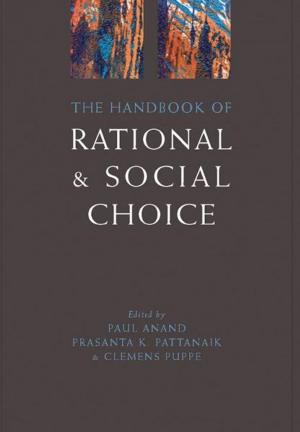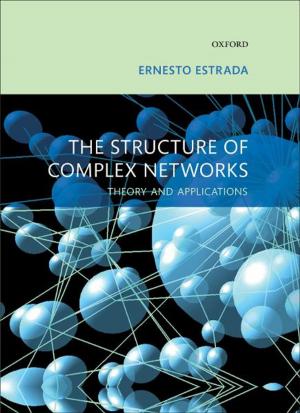Trials of the Diaspora
A History of Anti-Semitism in England
Nonfiction, History, British, Religion & Spirituality| Author: | Anthony Julius | ISBN: | 9780191636059 |
| Publisher: | OUP Oxford | Publication: | February 9, 2012 |
| Imprint: | OUP Oxford | Language: | English |
| Author: | Anthony Julius |
| ISBN: | 9780191636059 |
| Publisher: | OUP Oxford |
| Publication: | February 9, 2012 |
| Imprint: | OUP Oxford |
| Language: | English |
Trials of the Diaspora presents the long and troubling history of anti-Semitism in England, from the middle ages to the twenty-first century. Anthony Julius identifies four distinct versions of English anti-Semitism, which he then investigates in detail. The first is the anti-Semitism of medieval England, a radical prejudice of defamation, expropriation, and murder, which culminated in 1290, the year of Edward I's expulsion of the Jews from England, after which there were no Jews left to torment. The second major strand is literary anti-Semitism: an anti-Semitic account of Jews continuously reappearing in English literature, from the anonymous medieval ballad "Sir Hugh, or the Jew's Daughter" through Shakespeare to Charles Dickens, T. S. Eliot, and beyond. Thirdly, Julius addresses modern anti-Semitism, a quotidian anti-Semitism of insult and partial exclusion, pervasive but contained, experienced by Jews from their 'readmission' to England in the mid-17th century through to the late 20th century. The final chapters then deal with contemporary anti-Semitism, a new configuration of anti-Zionisms, emerging in the late 1960s and the 1970s, which treats Zionism and the State of Israel as illegitimate Jewish enterprises. It is this final perspective which, in Julius's opinion, now constitutes the greatest threat to Anglo-Jewish security and morale. This book, the first history of its kind, has already provoked much comment and debate in its hardback edition, coming as a timely reminder that English culture has been in no way immune to anti-Semitism - and in certain ways is still not to this day. The paperback edition now includes a new preface by the author and a conclusion delineating the main categories of anti-Semitic prejudice.
Trials of the Diaspora presents the long and troubling history of anti-Semitism in England, from the middle ages to the twenty-first century. Anthony Julius identifies four distinct versions of English anti-Semitism, which he then investigates in detail. The first is the anti-Semitism of medieval England, a radical prejudice of defamation, expropriation, and murder, which culminated in 1290, the year of Edward I's expulsion of the Jews from England, after which there were no Jews left to torment. The second major strand is literary anti-Semitism: an anti-Semitic account of Jews continuously reappearing in English literature, from the anonymous medieval ballad "Sir Hugh, or the Jew's Daughter" through Shakespeare to Charles Dickens, T. S. Eliot, and beyond. Thirdly, Julius addresses modern anti-Semitism, a quotidian anti-Semitism of insult and partial exclusion, pervasive but contained, experienced by Jews from their 'readmission' to England in the mid-17th century through to the late 20th century. The final chapters then deal with contemporary anti-Semitism, a new configuration of anti-Zionisms, emerging in the late 1960s and the 1970s, which treats Zionism and the State of Israel as illegitimate Jewish enterprises. It is this final perspective which, in Julius's opinion, now constitutes the greatest threat to Anglo-Jewish security and morale. This book, the first history of its kind, has already provoked much comment and debate in its hardback edition, coming as a timely reminder that English culture has been in no way immune to anti-Semitism - and in certain ways is still not to this day. The paperback edition now includes a new preface by the author and a conclusion delineating the main categories of anti-Semitic prejudice.


